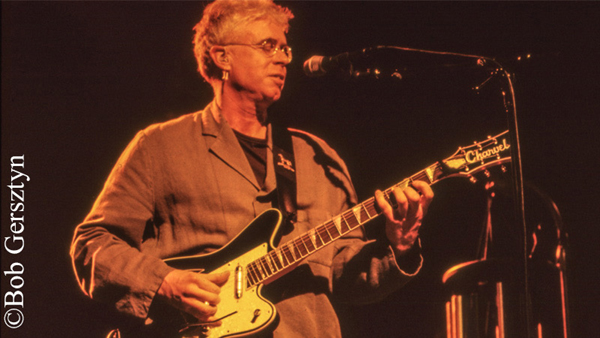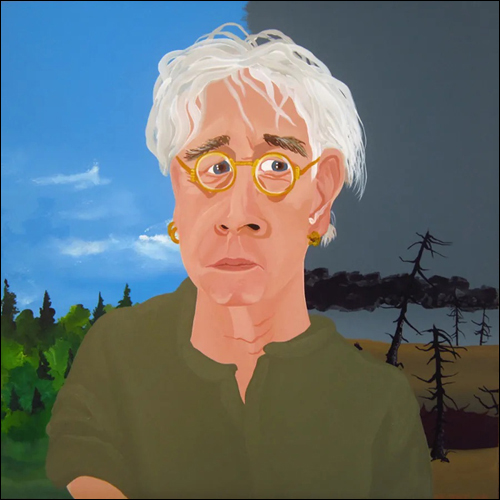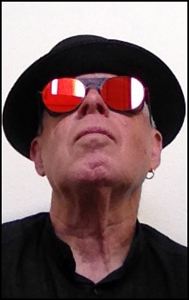
2 November 2021 – Bruce Cockburn is a singer songwriter that is cross between Phil Ochs and Robert Johnson. Lyrically his compositions are politically and spiritually charged with driving hook-laden melodies while they are delivered using stellar guitar accompaniment. Cockburn is one of those performers that can entertain audiences equally as well with either an electric guitar and full band or solo with only an acoustic guitar. Musically he is a guitar virtuoso with a baritone voice that has mesmerized his fans for five decades. His songs cover a gamut of subjects ranging from politics and human rights to the environment and religion. His extraordinary guitar playing prowess covers a range of styles from jazz and finger picking country blues to hard rock with feedback laden guitar solos. Over the past five decades, he’s released over two dozen studio albums of original compositions and entertained audiences around the world. His travels through Central America along with Europe and Asia as far as Tibet during the 1980s gave him the subject matter for some of his best songs. At 76 years of age, he is still going strong, and prior to embarking on a concert tour beginning in December, “True North Records” is releasing a 30 song double CD of Bruce Cockburn’s Greatest Hits (1970-2020). Blues Rock Review talked to Bruce about his upcoming tour and delved into the message of his music.
How did you choose the 30 songs on your upcoming Greatest Hits (1970 – 2020)?
They are all singles. It’s a bit of an exaggeration I’d say but they were all songs that we would have liked to have been hits and some of them actually were. They are all the singles that were fired in the direction of radio.
I’m very familiar with your work because I’ve been following you since 1980 and have just about all your albums so I know that even if all of them weren’t radio hits they are the ones that stand out.
Among them certainly are the songs that people have kind of embraced more than others so we can use the term hits metaphorically. Some of those songs were not particularly noticed, others were, and some of them were noticed in certain regions and others in other regions and that kind of thing. So some of them like “Rocket Launcher,” “Wondering Where the Lions Are,” among others got significant national attention so that made them obvious. So basically it’s all the songs that had been singles and I think that we left one out that we intended to include.
What are your favorite three out of the thirty?
“Night Train” is one of my favorites of the songs I’ve written along with “All the Diamonds in the World” and “Mama Just Wants to Barrelhouse All Night Long.” Those are always songs that I liked to play myself the whole way along and not just to record or perform but myself, “I’m able to relate to those songs over and over, and over and over again. They’re the ones that stand out in my mind. “Going to the Country” I think stands up pretty well. It’s hard to pick favorites really.
“Mama Wants to Barrelhouse All Night Long” is an obviously blues driven composition. What blues artists over the years have inspired you?
Back in the day, many I mean, I listen to less blues stuff now than I did when I was learning to play guitar, learning to fingerpick let’s say because I already knew how to play guitar when I discovered that music when I was introduced to it, but really the people who influenced me as a guitar player were Brownie McGhee, Mississippi John Hurt, Mance Lipscomb, and country blues generally even though Brownie is not necessarily country blues. It was the folk blues that you could hear in the 1960s that was a very strong influence on me. There was Blind Willie Johnson but you wouldn’t hear him in my guitar playing. I don’t play like him at all but as an inspiration, he’s right up there. It was those guys kind of mixed with jazz players that I listened to a lot that really shaped the way I play guitar.
Like Django Reinhardt?
No, not like Django Reinhardt but Wes Montgomery and Gabor Szabo. Django was a brilliant player and I loved his music but it wasn’t an influence on me particularly with the exception of the tune called “Lulosabat” from the mid 1970s. The early 1970s, that kind of self consciously swingy style but it’s not Django style, it’s just basically the structure of the tune or reminiscent of that. But no, the guitar players that interested me were in the jazz world more. The guys that were sort of interesting in the 1960s when I was really getting into that music. As I said there was Wes Montgomery and Gabor Szabo who a lot of people don’t know about him but he’s really great. When I encountered him he was playing with the “Chico Hamilton Quintet.” Sometimes a quartet and sometimes a quintet and they made three albums with that configuration. They are brilliant records and Charles Lloyd’s compositions shaped my sense of music to a great degree too but Gabor Szabo’s playing on those records is really brilliant. His own records, he made a couple under his own name that are not as interesting. They kind of give you a taste of what he was doing and I heard him live with Chico Hamilton but I kind of wish I could have heard him live as himself because I think that what is hinted at on his records would have been really great live but they didn’t quite catch it. Those three albums from the early to mid-1960s were really great. You can find them and one was called Man From Two Worlds that are under Chico Hamilton’s name and there’s one called A Different Journey, it’s a really good one.
He’s probably the biggest single influence on my jazz playing but I listened to everybody. John Abercrombie was a classmate of mine at Berklee and I got to watch him play up close. There were all kinds of people around. I’ve always been drawn towards wanting to do something like everything I hear that I like. So if I listen to a “Bartok String Quartet” I want to do something just like that. If I listen to Robert Wilkens singing “I Wish I Was in Heaven Sitting Down” I want to do something just like that. It was just the way that I was sort of built. In the case of the Robert Wilkens’s song, I actually learned the song and I’m capable of performing that but that is not true of “Bartok String Quartets.” When these influences come in sometimes they’re pretty audible, most of the time they’re kind of mixed in with all kinds of other influences so it’s not so obvious.
Are You Going to be performing solo or with a band on your upcoming tour?
These will be solo shows.
So it will be you and an acoustic guitar?
Pretty much me and a couple of different ones.
In 1983 when you wrote “The Trouble With Normal” on the album of the same name, it had a line about “the planet lurching to the right,” It seems like it’s lurching more towards the left now. How do you see it?
I think the opposite, I think it is lurching even more to the right. I think that’s what all the populist crap is about. That’s what the anti-vaxxers are about. It’s not across the board and you may be right because what I see as a swing to the right may produce a backlash that will bring a more socialist view in popularity but I just see everywhere that I look around the globe at these would be dictators rousing their populations against somebody, against minorities, against refugees, against something else and it seems to be global so I don’t think that it’s going to the left.
Do you think that the policies from back when you wrote “If I Had a Rocket Launcher” in the early 1980s contributed towards the situation going on today with the mass immigration into the US?
I think it’s simplistic to try and put just one cause to it but I think from the ’80s and earlier. From the 50s really onwards through the ’80s have had an effect that we’re feeling now, that’s for sure, certainly with respect to Central America. Other parts of the world I know less about.
Who would you aim your rocket launcher at today?
Well, I’m not really looking for anybody to aim. It was a reaction to a situation at the time and I hope that I never find myself in a comparable situation. Who do I think represents a major threat to the United States and to the world? There’s quite a long list of them actually and they are the people that think money is more important than life, especially other people’s lives. They’re steering us in a very bad direction. I don’t know how we’re going to deal with that all but you can’t take one issue or even a set of issues and isolate them and say we can focus on this to the exclusion of other things. So you can’t say that climate change is the big issue facing us. It might be the most dire one that is threatening on the larger scale but along with that goes the trend away from democratic values. I think people are afraid and when people are afraid they want to make everything simple and have somebody else make choices for them and tell them it’s okay. We’re seeing a lot of that around and to some extent, that fear is caused by climate change but it’s also the pandemic, it’s also all the conspiracy theories. It’s just around and just like the cliché the only thing you have to fear is fear itself. It’s not exactly that simple but certainly if we could get past testing our surroundings and the things that come at us in terms of fear we would have a better chance of dealing with those things.
One of your most popular songs is “Lovers in a Dangerous Time” from that same time period. Are we now living in a less, the same or more dangerous time?
Somewhere in the world, it’s always dangerous. I don’t know if it’s more dangerous now. I think that we’re getting closer and closer to it. I believe in the science that I’ve been exposed to that says we are getting closer and closer to an irreversible tipping point in respect to environmental conditions. The environmental conditions that we’re familiar with are essential to life as we know it and that’s pretty dangerous. I don’t know if you can get more dangerous than that. We haven’t lost any of the other stuff. We still have diseases that ravage us. We still have the threat of nuclear war. Nobody talks about it but it’s still there. We still have an endless number of threats that we’ve created ourselves. So it’s at least as dangerous, certainly not less dangerous but like I said, I think that anybody’s time is dangerous if you look at the things that threaten.
In the song “A Dream Like Mine” you talk about walking with the power of a thousand generations. What did you mean by that?
I was thinking of the revivalists is kind of what you would call it sort of, the revival of moral among indigenous people. I mean that is what that song is about, what I had seen myself. When I first became acquainted with people from that background in the early 1970s you could see what had happened, you could see the demoralization that had been inflicted on them partly by design, partly by the flow of history. You could see the negative effect of stuff like the residential schools and so on has had but you could also see that people were coming out from under that and my generation, my contemporaries that I was meeting really had this great sense of pride and who they were and a sense of identification with the best of their history. That to me was exciting to see and very, a dumb kind of word, but heartwarming. The song came along a little bit later than that but it was written and intended to be part of a film score. To be the main theme of the music that was made of the same name. Originally it was going to be of the same name which was based on a book of the same name, a Canadian novel about a kind of archetypal native spirit character warrior who comes back to life. He walks out of a lake at the beginning of the book and he’s not a very nice guy actually but quite a ferocious person but he represents that warrior spirit coming back. I got the idea from the title of the book and reading the book and then just as a flow. As it turned out the director of the film didn’t like my ideas. So I ended up not doing the music for the film but the song was there anyway. I thought it was good actually and I was happy to get it.
When Jerry Garcia was alive the Dead used to perform your song “Waiting For a Miracle.” Did you like their version?
I was really glad they did it. I wish that Jerry got the words right.
A miracle for a “Deadhead” was a free ticket to the concert.
There are many kinds of miracles.
Before we conclude the interview is there anything that you would like to talk about that you feel is important to you at the present.
Not especially but I’m really looking forward to doing these shows that are coming up and I’m really hoping they happen. We’re all carrying on, on the assumption that they will happen but given the situation, we’re all in you can’t take anything for granted. So I’m itching to get out there and play these songs for people.
Concerts have been happening and hopefully they will continue.
If we don’t get another big wave of COVID I think they’ll happen for sure. The big unknown, of course, is whether or not and it’s only a month away now, more or less before they start so as it gets closer the odds get better of everything working.
Thanks for taking the time to talk to us and I look forward to seeing you when you come to Portland. Have a good rest of your day.
You too, thank you. I appreciate your interest.
~from https://bluesrockreview.com/2021/11/bruce-cockburn-interview.html









